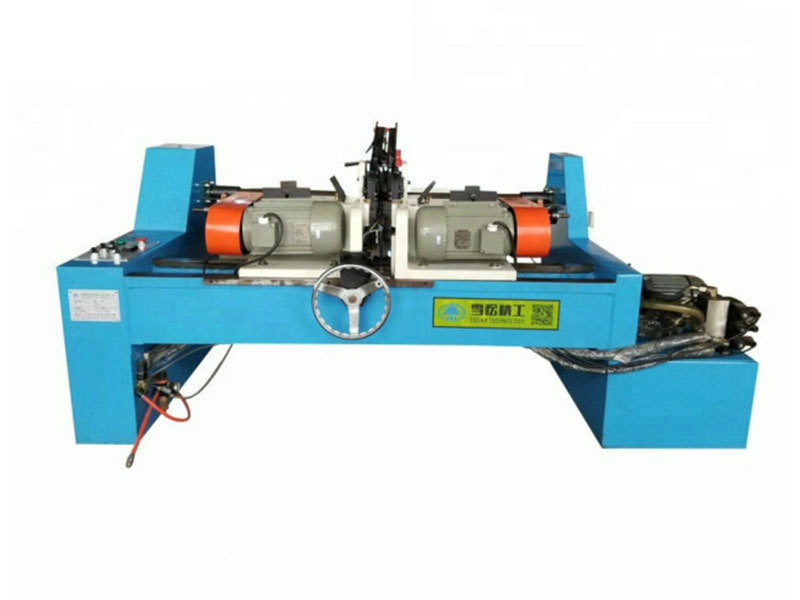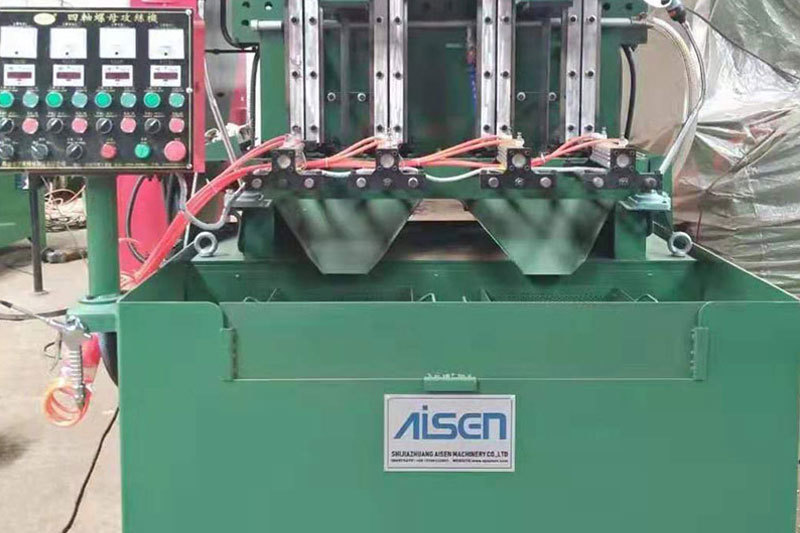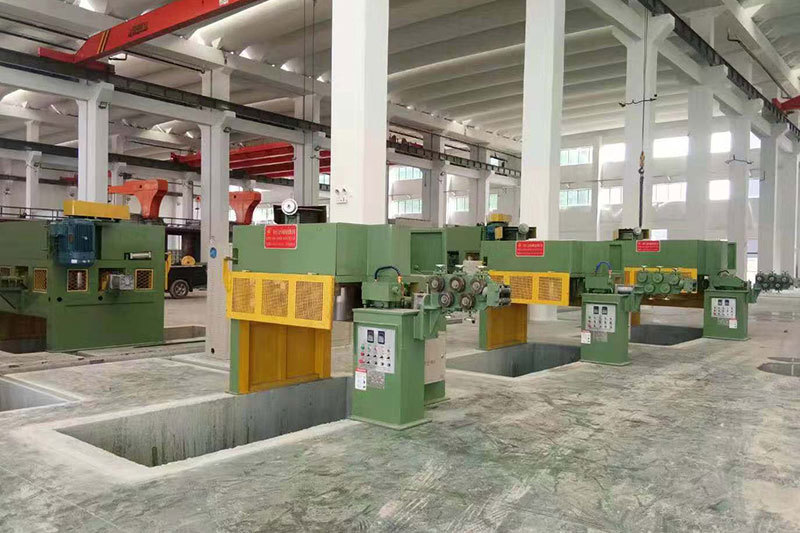Double Head Chamfering Machine: A Key Tool for Precision Engineering
Summary:
Double Head Chamfering Machine: A Key Tool for Precision Engineering
Table of Contents
1. Introduction to Double Head Chamfering Machines
2. Key Features of Double Head Chamfering Machines
3. Benefits of Using a Double Head Chamfering Machine
4. Applications in Various Industries
5. How to Choose the Right Double Head Chamfering Machine
6. Maintenance Tips for Long-lasting

Double Head Chamfering Machine: A Key Tool for Precision Engineering
Table of Contents
- 1. Introduction to Double Head Chamfering Machines
- 2. Key Features of Double Head Chamfering Machines
- 3. Benefits of Using a Double Head Chamfering Machine
- 4. Applications in Various Industries
- 5. How to Choose the Right Double Head Chamfering Machine
- 6. Maintenance Tips for Long-lasting Performance
- 7. Common Issues and Troubleshooting Techniques
- 8. Conclusion
- 9. Frequently Asked Questions
1. Introduction to Double Head Chamfering Machines
The **Double Head Chamfering Machine** stands as a pivotal tool in the realm of precision engineering. Designed to create chamfers on the edges of various materials, this equipment is essential for enhancing the safety and aesthetics of parts. This machine not only speeds up production but also ensures uniformity and accuracy, making it an indispensable asset in modern manufacturing processes.
2. Key Features of Double Head Chamfering Machines
Double Head Chamfering Machines boast a variety of features that set them apart from traditional chamfering tools. Below are some of the standout characteristics:
2.1 Dual Head Operation
The primary advantage of a double head configuration is its ability to perform simultaneous chamfering on both sides of a workpiece. This dual operation significantly reduces cycle time, enhancing productivity.
2.2 Adjustable Cutting Angles
Most modern machines come with the capability to adjust cutting angles, enabling operators to create different types of chamfers tailored to specific project requirements.
2.3 User-Friendly Interface
An intuitive control panel allows operators to set parameters quickly, making it easy to switch between different tasks without extensive training.
2.4 Enhanced Safety Features
Safety is paramount in any engineering environment. Double Head Chamfering Machines often include emergency stop buttons, protective covers, and sensor technology to minimize risks.
2.5 High Cutting Speed and Precision
These machines utilize advanced technology to achieve high cutting speeds while maintaining exceptional precision. This is crucial for industries that require tight tolerances.
3. Benefits of Using a Double Head Chamfering Machine
Incorporating a Double Head Chamfering Machine into your production line provides numerous advantages:
3.1 Increased Efficiency
By performing operations on both sides of a workpiece simultaneously, these machines cut down on production time, allowing for a more efficient workflow.
3.2 Cost-Effectiveness
Though the initial investment may be higher, the long-term savings due to reduced labor costs and faster production rates make these machines a cost-effective solution.
3.3 Improved Quality
The precision offered by these machines results in high-quality outputs that require less post-processing, which translates to lower scrap rates.
3.4 Versatility
Double Head Chamfering Machines can be used on various materials, including metals, plastics, and composites, making them versatile tools in any workshop.
4. Applications in Various Industries
The applications of Double Head Chamfering Machines are vast, covering numerous sectors:
4.1 Aerospace Industry
In aerospace engineering, the need for lightweight and durable components is critical. Chamfering plays a vital role in ensuring the integrity of these parts.
4.2 Automotive Manufacturing
Automotive components often require precise chamfers to meet safety standards. These machines help manufacturers maintain high-quality production.
4.3 Metalworking
In metal fabrication, chamfering not only enhances the appearance of products but also improves their functionality, particularly in welding applications.
4.4 Construction
For construction materials, chamfering reduces sharp edges that could pose safety hazards, making these machines essential in pre-fabrication processes.
5. How to Choose the Right Double Head Chamfering Machine
Selecting the appropriate Double Head Chamfering Machine involves considering several factors:
5.1 Assess Your Production Needs
Evaluate the volume and type of workpieces you will process to determine the capacity and specifications required.
5.2 Look for Customization Options
Choose a machine that offers customizable features, allowing flexibility as your production needs evolve.
5.3 Research the Manufacturer's Reputation
Opt for machines from reputable manufacturers known for their quality and reliability, ensuring you invest in a durable product.
5.4 Compare Pricing and Warranty
Not all machines are priced equally. Compare multiple models and consider warranty options to protect your investment.
6. Maintenance Tips for Long-lasting Performance
Proper maintenance is crucial to ensuring that your Double Head Chamfering Machine operates at peak performance:
6.1 Regular Cleaning
Keep the machine clean to prevent dust and debris from affecting its performance. Regularly remove chips and lubricate moving parts.
6.2 Scheduled Inspections
Implement a routine inspection schedule to identify any wear and tear early, minimizing potential downtime.
6.3 Follow Manufacturer Guidelines
Always refer to the manufacturer's maintenance manual to follow specific guidelines for servicing and upkeep.
7. Common Issues and Troubleshooting Techniques
Despite their reliability, Double Head Chamfering Machines may encounter issues. Here are some common problems and solutions:
7.1 Inconsistent Chamfer Quality
If you notice varying chamfer quality, check the cutting tools for wear and adjust the machine settings accordingly.
7.2 Machine Vibration
Excessive vibration can indicate misalignment. Ensure that all components are securely fastened and that the machine is level.
7.3 Motor Overload
Frequent overloads may signal that the machine is being pushed beyond its capacity. Review your production load and adjust as necessary.
8. Conclusion
The **Double Head Chamfering Machine** is an essential tool for precision engineering that delivers efficiency, quality, and versatility. By understanding its features and benefits, selecting the right model, and maintaining it properly, manufacturers can significantly enhance their production processes. As industries continue to evolve, investing in advanced machining technology like this will remain crucial for staying competitive.
9. Frequently Asked Questions
9.1 What materials can be processed with a Double Head Chamfering Machine?
These machines are versatile and can handle various materials, including metals, plastics, and composites.
9.2 How does a double head operation improve productivity?
By chamfering both sides of a workpiece simultaneously, these machines drastically reduce cycle times, leading to increased output.
9.3 Are there specific safety precautions to follow when operating these machines?
Yes, operators should always wear appropriate safety gear and familiarize themselves with the machine's safety features before use.
9.4 Can I use a Double Head Chamfering Machine for different chamfer angles?
Most modern machines allow for adjustable angles, making it easy to create different chamfer styles as needed.
9.5 What is the typical lifespan of a Double Head Chamfering Machine?
With proper maintenance and care, these machines can last for many years, often exceeding the initial performance expectations.
Latest News
AISEN Four axis nut tapping machine ready for shipment to Russia
Four axis nut tapping machine for DIN934 M8,M10 Standard hex nut is ready for shipping to Russia by land transportation.
AISEN machinery inverted wire drawing machine
We hope to cooperate with more customers for mutual development and benefits. You are welcome to contact us









